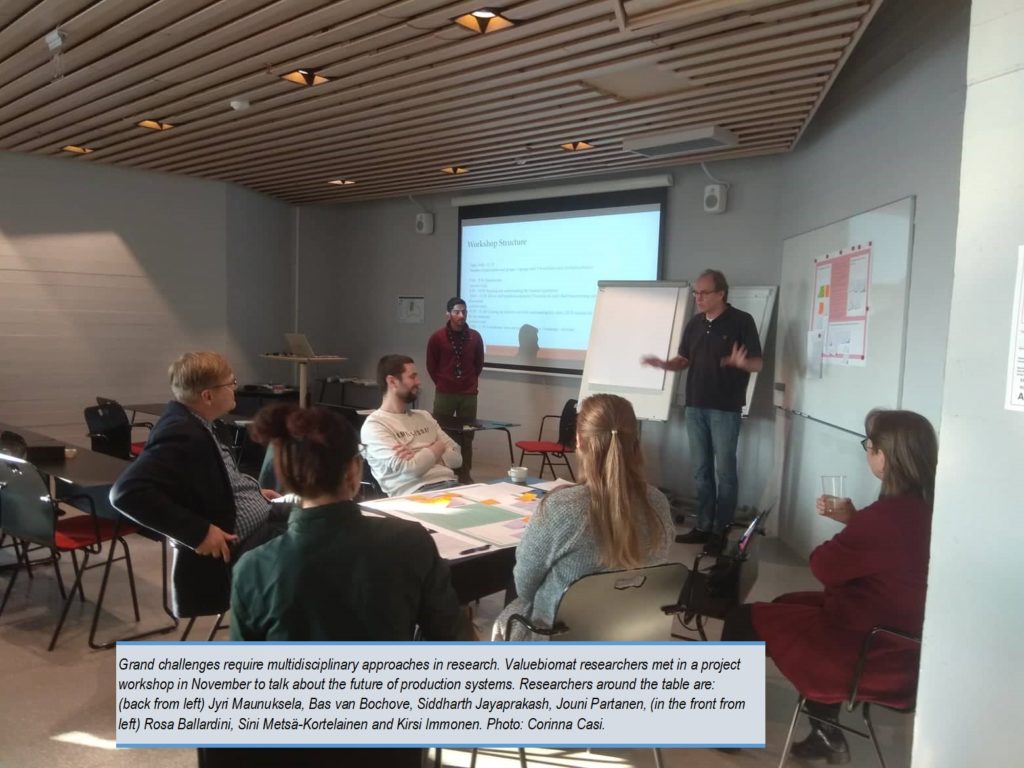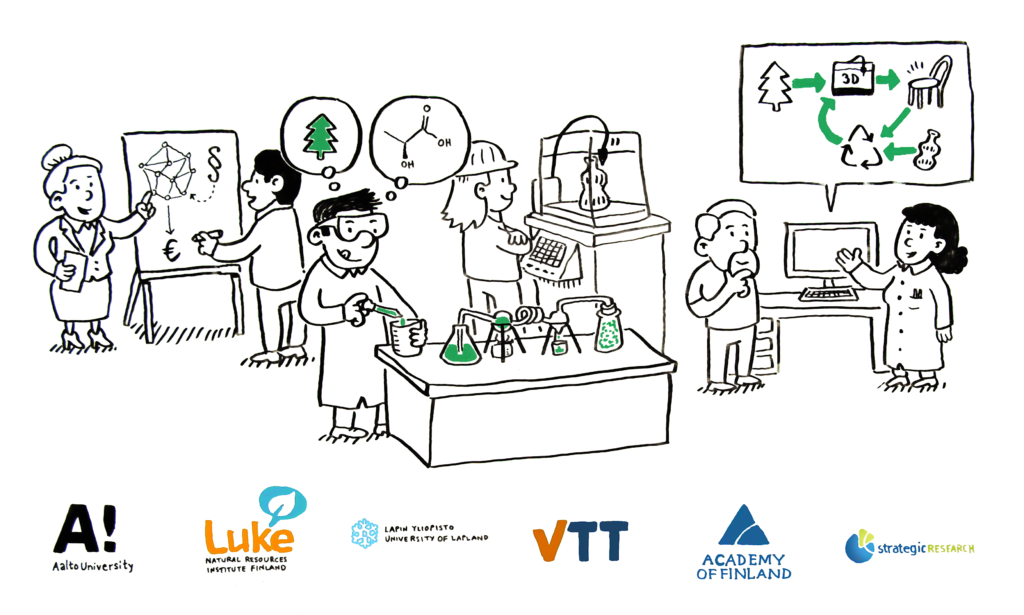Author: Anna Leinonen/ VTT
How can research fulfil such challenging purposes as creating great societal impact or developing solutions to extremely complex and systemic grand challenges? Moreover, what are the implications of such aspirations to the understanding of the researcher’s role, if innovation and high-quality research are not the only expectations of research output?
Above questions are relevant to ValueBioMat researchers to reflect on, because the project is part of the IMPRES research program of the Strategic Research Council (SRC) of the Academy of Finland. Connection to the SRC program creates special expectations for research. Research should fulfil the missions of the council, which are to produce high-quality research with great societal relevance and impact, and to seek concrete solutions to grand challenges that require multidisciplinary approaches. The IMPRES program connects these challenges to the development of innovative materials and services to promote resource wisdom and sustainable development.
New roles for researchers
It is certain that the missions listed above challenge the role of research and the way, how researchers should see their work and purpose in society. It is not enough anymore to remain in the position of an academic expert, who evaluates what is worth of research or what is considered as a desired outcome of research merely from scientific perspective. Therefore, sustainability scholars have proposed new conceptions on the researcher’s role: researchers can be facilitators, catalysts, or even activists in transition.
- Science can function as knowledge broker in society. Therefore, researchers can take a facilitating role in knowledge creation processes, which strive for creating transdisciplinary solutions and integrating the perspectives of different stakeholders to produce profound changes in societies.
- The catalyst position emphasises the role of research in the early phases of transitions as the initiators of change. This could mean developing new solutions or frameworks for understanding the required changes or for monitoring the progress, but inviting other stakeholders to collaborate and taking the development further in society.
- The conception of researchers as activists entails a close connection between researchers and policymakers. According to this view, researchers should actively inform policymaking using their expertise and the criticality inherent to scientific activity. The activist role requires continuous commitment to sustainability goals, communication of research findings and opening up beyond the scientific community.

Who am I?
The above conceptions of researcher’s role in transition should not be understood as guidelines or descriptions of individual researcher’s responsibility, but rather as models of a collective identity or ideals, which describe what we should strive for as researchers. Each of them includes also challenges. How can facilitation rise above the level of “research collaboration” or “participatory conversation”, and truly produce sustainable solutions integrating perspectives of different disciplines? How do the scientific catalysts manage to mobilize other stakeholders to continue the implementation of transition? And finally, how can the activist researcher reconcile the ideals of independent objective science and political mission-driven purposes? Each research process and researcher need to solve these questions in one way or other, because the need for sustainable transitions in the world is urgent.

